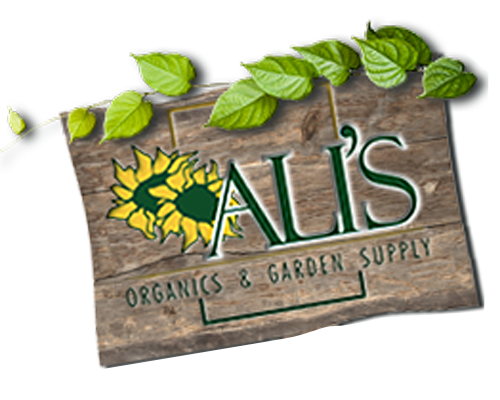Organic Fertilizers for Vegetable Gardens
Posted February 01, 2014

There are so organic fertilizer choices today it may seem a little overwhelming what to buy. There are blends of different fertilizers like Vegan Mix, All Purpose and Bio-Fish fertilizers, single types such as Blood Meal, Green Sand or Cotton Seed Meal, liquid fertilizers, pellets and powders. Plant fertilizers, animal fertilizers, mined fertilizers and green manure fertilizers. The list is huge!
Knowing what your soil needs is the first step in choosing the right fertilizers. Most states offer testing through their County Extension Service with soil testing costing around $25. You can also purchase simple do-it-yourself test kits to quickly test the NPK and pH to give you a good start.
While plants need all the fertilizer elements (NPK & Micronutrients), some need more than others.
Nitrogen is the key element plants need for vigorous vegetative growth. Organic Nitrogen Fertilizers include: Blood Meal, Cottonseed Meal, Feather Meal, Fish Meal, Soybean Meal, Bat Guano, Seabird Guano, Earth Juice Grow. Vegetable plants use more nitrogen are Spring crops like lettuce, spinach, broccoli, cabbage, kale and other leaf greens. While all plants need nitrogen, less is more when growing fruiting crops like peppers, tomatoes and squash.
Phosphorus is essential for plants to produce flowers, fruits and develop a healthy root system. Some Organic Fertilizers that contain a good amount of phosphorous are Soft Rock Phosphate, Bone Meal, Liquid Bloom, Fish Bone Meal and Bat Guano 0-7-0. High Phosphorous fertilizers are super for tomatoes, peppers, eggplant, squash and fruit trees, yet all plants require phosphorous to be healthy.
Potassium is needed for the overall health of the plant. It helps regulate the plants metabolism which reduces plant stresses. Excellent potassium sources are Greensand and Langbeinite.
Calcium is important to build sturdy cell walls in plants. Oyster-shell or Dolomite Lime will correct calcium imbalances in low pH soil while Gypsum is a better choice for high pH soils.
Trace Minerals are needed in small amounts, but most essential for the plants overall health, vigor, pest and disease resistance. Most soils are deficient in trace minerals and can be added with Liquid Micro Nutrients, Kelp Meal, Azomite, or Greensand, and ample amounts of compost. Keeping the soils pH near neutral or just below will also help plants take up trace minerals added and exsisting in the soil.
If you are new to gardening and feel a little overwhelmed by all the choices, then we suggest to start with a blend that contains a well-balanced amount of Nitrogen, Phoshorous, Potassium and Trace Minerals. Here are some great choices: All Purpose 4-6-2, Starter Mix 3-3-3, Vegan Mix 3-2-2 (only vegetative matter) and for Spring Gardens, Spring Mix 5-6-6 , Bio-Live 5-4-2 and Bio-Fish 7-7-2.




Comments (1 Comment)
makes good sense!
Posted by virginia on February 04, 2014
Post Comment